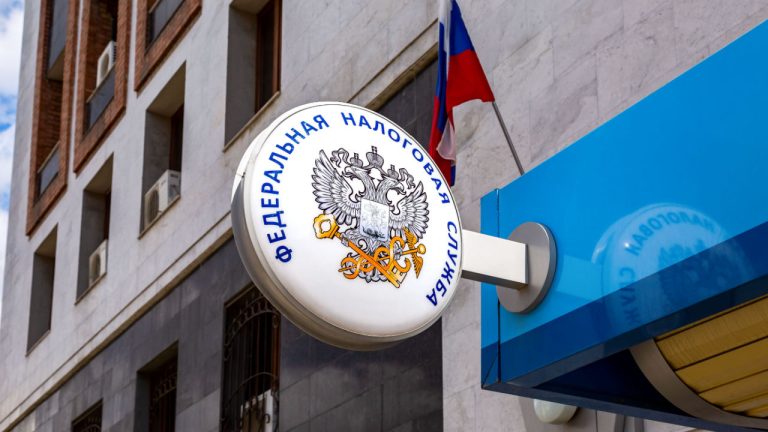 Russia’s tax administration is going to be tasked with overseeing the crypto industry in the country, a high-ranking government official has indicated. According to the regulatory concept that’s currently under consideration, the revenue service will also serve as an entry point for market participants. Russians to Report Crypto Holdings and Transactions to Their Tax Service […]
Russia’s tax administration is going to be tasked with overseeing the crypto industry in the country, a high-ranking government official has indicated. According to the regulatory concept that’s currently under consideration, the revenue service will also serve as an entry point for market participants. Russians to Report Crypto Holdings and Transactions to Their Tax Service […]
The European Union (EU) has now passed comprehensive legislation to regulate the cryptocurrency industry. The Markets in Crypto Assets (MiCA) regulation will create a uniform set of rules for crypto across the EU and was passed unanimously on Tuesday. Crypto companies will need to obtain a license from national regulators and adhere to strict rules under the […]
The post European Union Officially Adopts New Comprehensive Crypto Regulation With Passing of MiCA appeared first on The Daily Hodl.

Speaking at the Financial Markets Conference, the SEC chair asserted that the rules for crypto are already in place and that the crypto sector has been largely non-compliant.
The chair of the United States Securities and Exchange Commission, Gary Gensler, has hit back at Coinbase’s petition compelling the agency to provide a clear stance on crypto regulation, arguing that there are already adequate laws in place.
In a May 15 keynote speech at the Financial Markets Conference, Gensler was asked about the dispute with Coinbase, the rules on crypto and why “the SEC doesn’t publish rules for that market.”
In response, Gensler staunchly asserted that “the rules have already been published,” adding that:
“To make it quite direct: this is a field that has been operating largely non-compliant. [...] There’s nothing about a new technology that makes it non-consistent with the public policies that congress has laid out.”
Gensler argued that the SEC has already put out the rules for what is required to custody assets, be an exchange, broker dealer or advisor and how to register securities offerings with the agency.

The SEC chair’s current view is that most crypto assets — apart from Bitcoin (BTC) — fall under the securities definition of an investment contract.
“If the public is investing money and anticipating profit based upon the efforts of others, in a common enterprise, that’s a security,” he said, adding:
“There’s financial intermediaries, nodes in the network, and they need to come into compliance if they’ve got securities on their platforms.”
Coinbase — and many other U.S. crypto firms — have repeatedly spoken out against an apparent lack of clear crypto regulation and the SEC’s so-called “regulation by enforcement” approach to crypto, along with its hostile nature when dealing with digital asset firms.
This afternoon, I’ll be joining @AtlantaFed’s 2023 Financial Markets Conference.
— Gary Gensler (@GaryGensler) May 15, 2023
My remarks will be livestreamed at 12:45pm: https://t.co/T01c8zAD8c#FedFMC https://t.co/igDs9w8F1y
In April, the firm went as far as to file an action in federal court seeking to compel the SEC to publicly disclose its stance on a petition from July 2022 calling for clear rules for the crypto sector.
Notably, the U.S. Chamber of Commerce has also echoed this call from Coinbase as it heavily criticized the SEC’s oversight via May 9 amicus brief.
“The SEC has deliberately muddied the waters by claiming sweeping authority over digital assets while deploying a haphazard, enforcement-based approach,” it stated.
Related: SEC under fire for its custody rule: Law Decoded, May 8–15
On May 8, the Coinbase chief legal officer Paul Grewal also sent a letter to the SEC requesting revisions to the agency’s proposed updates to its registered investment advisers custody rule.
Essentially, Coinbase argued that the proposals unfairly target crypto companies, provide a lack of nuanced rules for different asset classes and make improper assumptions about custodial practices based on securities.
Other players in the space such as Web3 venture capital fund Andreessen Horowitz (a16z) and the Blockchain Association have also echoed similar criticisms of the proposals.
Magazine: Crypto regulation — Does SEC Chair Gary Gensler have the final say?

The SEC originally wanted LBRY to pay millions of dollars in penalties, but now concedes the defunct firm can’t pay up that amount.
The United States securities regulator is seeking to revise its $22 million punishment against decentralized content platform LBRY, acknowledging it is unlikely to be able to cough up the funds to be able to pay it.
In a May 12 filing in a New Hampshire District Court, the Securities and Exchange Commission (SEC) sought an amendment to its request for remedies in its successful case against LBRY.
Instead of seeking the original $22 million — the amount it claims LBRY gained from the sale of its token LBRY Credits (LBC), the SEC has asked the court to impose a fine of $111,614, citing LBRY’s “lack of funds and near-defunct status.”
The request also asks to stop LBRY from “conducting future unregistered offerings of crypto asset securities.”
“The Commission acknowledges LBRY’s representations that it is defunct, ceasing operations, and without the funds to pay a larger fine, and recognizes that a defendant’s ability to pay is a factor when imposing a civil penalty,” the SEC said in the filing.
Millions of dollars spent for a fine of $111,614.00 and a company financially ruined. That helps the world. https://t.co/GhvCS0Az7s
— bill morgan (@Belisarius2020) May 12, 2023
The SEC first filed a civil suit against LBRY in March 2021 alleging the firm’s LBC sales were unregistered securities offerings. It asked for $22 million in disgorgement and for the court to order LBRY to halt any further LBC sales.
The SEC won the case in November 2022, the preceding Judge also ruled LBC was a security.
Related: Jump Trading faces lawsuit over alleged $1.3B profit from TerraUSD
The SEC said the smaller penalty was a compromise between “the need to balance the deterrence from a penalty with LBRY’s inability to pay.”
In a December filing, LBRY claimed the SEC’s request for $22 million wasn’t reasonable as it was “vastly” overstated and failed to “deduct any of LBRY’s legitimate business expenses.”
LBRY said the SEC’s calculation of the sum was “based on rough, back-of-the-envelope math” and the amount it sought was “simply not supported by the record.”
In December 2022, around a month after the SEC won the case a month prior, LBRY said it “will likely be dead in the near future” due to being “killed by legal and SEC debts.”
Magazine: Crypto regulation — Does SEC Chair Gary Gensler have the final say?

New York Attorney General Letitia James has proposed a new set of state crypto regulations that she says will increase transparency and enhance investor protections in the digital asset sector. James rolled out the new 30-page piece of potential legislation in a press release on Friday, arguing that it would represent “the strongest and most […]
The post New York Attorney General Proposes ‘Strongest and Most Comprehensive’ Set of State Crypto Regulations appeared first on The Daily Hodl.

The regulator nabbed the crypto ATM operator turned exchange for securities law violations over its sales and statements of a crypto token.
The United States securities regulator has handed down nearly $4 million in fines to crypto exchange Coinme for allegedly offering unregistered securities and giving “misleading statements” on its crypto token UpToken (UP).
On April 28 the Securities and Exchange Commission (SEC) said it settled charges against Coinme, its subsidiary Up Global SEZC and the CEO of both firms, Neil Bergquist.
Up Global agreed to pay a $3.52 million penalty, for which Coinme was also liable. Separate penalties against Coinme and Bergquist of $250,000 and $150,000 respectively were also leveled, which both have agreed to pay.
In its order, the SEC alleged Coinme, Up Global and Bergquist’s Initial Coin Offering (ICO) of UP between October to December 2017 was an investment contract under the Howey test and were subsequently unregistered securities offerings.

The ICO raised around $3.6 million to expand the amount of Bitcoin (BTC) ATMs in Coinme’s fleet, with which it added 30 ATMs using ICO funding. UP holders received benefits such as discounted fees and a 1% cashback paid in UP when using the ATMs.
In January 2019, Coinme changed its offering and partnered with Coinstar to use its cash-counting kiosks to facilitate cash-to-crypto transactions rather than its own ATMs. By July 2019 Coinme shut down all of its own ATMs.
“There is currently no use for UpToken, and UpToken holders can no longer use UpToken to obtain the benefits that were described in the UpToken offering materials.”
The price of UP has seen a significant drawdown since, with its market cap also falling to around $50,000 and 24-hour trading volumes topping just over $180.

Bergquist and Up Global also made “false and misleading statements” about the demand for UpToken and the amount raised in the offering according to the SEC.
Up Global said Coinme’s purchasing of UP to fund its ATM rewards program would create constant demand for the token, but the SEC said:
“Bergquist and Up Global took steps before and throughout the ICO to obtain an UpToken supply that would substantially reduce Coinme's need to purchase UpToken after the ICO for the ATM rewards program.”
The SEC claimed Coinme sent 160 BTC worth over $1 million at the time to an Up Global wallet used to receive investor funds in the ICO. Up Global sent back around 14.5 million UP at a discount to Coinme and the transaction “knowingly or recklessly” created the impression that a third party made a large purchase.
Related: Rep. McHenry announces hearings to address market structure around crypto
In another example, it was claimed Bergquist negotiated a 500 Bitcoin round-trip transaction of UP tokens with an unnamed Hong Kong company, with Coinme borrowing the funds to purchase further UP at a discount. The transaction was also used to create an impression of demand for the tokens.
The SEC said Bergquist didn’t admit or deny the regulator's findings, agreed to settle the charges and was barred from acting as an executive of a public company for three years.
Cointelegraph contacted Coinme for comment but did not immediately receive a response.
Magazine: Crypto regulation — Does SEC Chair Gary Gensler have the final say?

Patrick McHenry suggested that the hearings will look to add to the regulatory efforts being done on the bipartisan bill led by Senator Cynthia Lummis and Senator Kirsten Gillibrand.
Patrick McHenry, the Chairman of the House Financial Services Committee, has announced a series of joint hearings in May that will focus on addressing the market structure around digital assets in the U.S.
The move was revealed via a joint announcement on April 27 from Congressman McHenry, Glenn Thompson, Chairman of the House Agriculture Committee, French Hill, Chairman of the Digital Assets, Financial Technology and Inclusion Subcommittee, and the Chairman of the Commodity Markets, Digital Assets, and Rural Development Subcommittee, Dusty Johnson.
“Our Committees are embarking on an unprecedented joint effort to pass and sign into law clear rules of the road for the digital asset ecosystem. We must strike the appropriate balance to protect consumers without stifling responsible innovation,” the joint statement reads.
Speaking as part of a panel alongside crypto-friendly Senator Cynthia Lummis during the 2023 Consensus event on April 28, McHenry added more context to the upcoming hearings:
“We’re going to hold joint hearings when we return in May. This is going to be the first time we have had a holistic view for a house committee hearing around the regulation, our market structure around digital assets, and a holistic view of it.”
“What we plan to do over the next two months is report a bill out that deals with the capital raising piece for digital assets, all the way through to how a product can go from a securities regime to commodities regime and also at the same time, preserve our rights around products that are neither neatly [put] into a securities regime or commodities regime,” he added.
McHenry also stressed that the aim of the hearings is to establish a bill providing regulatory clarity to the crypto sector, which adds to the work being done on the bipartisan bill led by Lummis and Senator Kirsten Gillibrand.
@PatrickMcHenry said U.S. House Will Have Crypto Bill in 2 Months. pic.twitter.com/e06Sx9ec2H
— John Montague ("The ETH Lawyer") (@0xethlaw) April 28, 2023
The Responsible Financial Innovation Act, also known as the Lummis-Gillibrand bill, was initially introduced in the U.S. Senate in June 2022 and addresses Securities and Exchange Commission (SEC) and Commodities Futures Trading Commission (CFTC) jurisdiction, stablecoin regulation and crypto taxation, among other things.
The wide-sweeping bill has faced delays, likely due to its complexity for non-crypto-versed Senators. Lummis and Gillibrand have since revised the bill and are expected to release the next draft soon.
“This is the work that Senator Lumms and Senator Gillibrand put in on the Senate side, but this is going to be our attempt in the House [of Congress],” he said.
Related: Elizabeth Warren wants the police at your door in 2024
Commenting on the revised bill, Lummis suggested that this iteration will likely have an additional focus on “national security interests” such as cyber security.
“Some of the people that I speak to that remain very skeptical about digital assets are concerned that cybercrime is not adequately addressed in our bill. So I think you’ll see a stronger cybercrime aspect to our bill. I think you’ll see some provisions that require certain registration [...] so that companies are properly regulated and vetted,” she said.
In my estimation, the reason so many young Americans are into #Bitcoin is because it is #soundmoney. The federal govt’s blank check spending habit, coupled with the complete erosion of the gold standard and the development of the internet, led us here. Inevitable.
— Cynthia Lummis (@CynthiaMLummis) April 25, 2023
Magazine: Crypto regulation — Does SEC Chair Gary Gensler have the final say?

The SEC boss reiterated that “the law is clear” on cryptocurrencies being securities, while others highlighted the lack of regulatory clarity in the U.S.
Another swipe has been taken at the crypto industry by the chair of the United States securities regulator, who claimed many crypto platforms are operating in violation of securities laws.
In an April 27 tweet, Securities and Exchange Commission (SEC) chair Gary Gensler shared a 4-minute video of himself describing crypto assets as “investment contracts” before calling on platforms that offer such products to register with the SEC to protect American investors.
“An Investment contract exists when you invest money in a common enterprise with a reasonable expectation of profits, to be derived from the efforts of others,” he said.
Intermediaries for investment contracts are required to comply with securities laws & register with @SECGov.
— Gary Gensler (@GaryGensler) April 27, 2023
Instead, many crypto platforms are contending that their investment contracts are something else.
The law cares about what something actually is, not what you call it.
“Crypto markets suffer from a lack of regulatory compliance. It's not a lack of regulatory clarity. [...] The law is clear, if you’re a securities exchange, clearinghouse, broker or dealer, you must come into compliance, register with us,” Gensler added.
The SEC has been at the forefront of the U.S. crypto crackdown, with Gensler continually asserting that essentially all crypto assets — apart from Bitcoin (BTC) — fall under the classification of securities.
It’s Gensler’s view that many crypto firms and platforms violate securities laws if they are not registered with the SEC.
In the comments of Gensler’s latest video many were quick to point out that prior to taking the helm at the SEC, Gensler had a completely contradictory view of the crypto market.
weird cause a guy told me three quarters of this space has already been determined by the securities and exchange commission not to be a security pic.twitter.com/0YsRcae3St
— RYAN SΞAN ALTCOIN - rsa.eth (@RyanSAdams) April 27, 2023
Over the past week, a viral video has been circulating across Crypto Twitter where Gensler can be seen lumping crypto in the same category as cash and commodities and describing digital assets as “non-securities.”
Related: Coinbase execs respond to SEC's Wells notice in person and on video
The SEC chair's comments come from a “Blockchain and Money” lecture in 2018 when Gensler was employed as a professor at the Massachusetts Institute of Technology (MIT).
"Three-quarters of the market is non-securities, it's just a commodity, cash, crypto,” Gensler said at the time.
Another one - The below clip is from a Fall 2018 Graduate MIT course called "Blockchain and Money"
— zk- (@ZK_shark) April 27, 2023
Gary Gensler - the current President of the SEC, was the professor.
Once again, I will let the below video speak for itself.
Lecture 8: Public Policy - October 1, 2018
"We'll… pic.twitter.com/rvweW2rz5t
Earlier this month, Gensler was grilled by members of Congress during an April 18 hearing which saw much criticism over his leadership and the SEC’s approach to crypto regulation, which seemingly appears to be regulation by enforcement.
During the hearing, Gensler refused to confirm on record whether he thought Ether (ETH) was a security or not.
Magazine: Crypto regulation — Does SEC Chair Gary Gensler have the final say?

Circle CEO Jeremy Allaire says that the US dollar’s competitiveness faces unprecedented threats as cryptocurrency advances in other countries. In a new Bloomberg Television interview, Allaire says that US Congress should pass pro-crypto legislation to ensure the country benefits from blockchain innovation. As large economies push to move away from the US dollar to settle […]
The post US Dollar Facing More Severe Threats Than Ever Before, Says Circle CEO Jeremy Allaire appeared first on The Daily Hodl.

The lawmaker said the regulation will need to be both “pragmatic” and “proportionate” to ensure economic growth is maximized.
The United Kingdom could lay out digital asset regulation within 12 months a British lawmaker claimed, saying the country wants to capitalize on the benefits that blockchain can bring to the private sector and economy.
In an April 17 CNBC interview, Andrew Griffith, the economic secretary to the U.K. Treasury said the long-term vision is to “let firms make the most of the opportunities from crypto assets” with sound crypto regulation.
For the first time in “decades,” Griffith claimed the U.K. government is now well-positioned to regulate crypto in a “pragmatic” and “proportionate” manner and appeared to make reference to the U.K.’s exit from the European Union:
“I think over the next 12 or so months is the window. We've got this great asset in the U.K., we've got control back of a rule book — not something the U.K. has had for decades — so we've got the ability to move in an agile and proportionate way.”
It led the lawmaker to assert that the U.K. is now in a “growth” mindset to maximize the economic efforts brought by tech innovation in the private sector.
Griffith explained the crypto regulatory framework would mix existing financial asset laws with new crypto-specific rules.
“Wherever possible we want to see the same asset regulated in the same way, but there are some additional opportunities in the crypto asset or distributed ledger space and we want to take advantage of that.”
He cited settlement using fiat-backed cryptocurrencies as an example which was included in the financial services bill. “So that's coming even sooner than the broader regulatory framework,” he added.
Related: Digital pound could co-exist with private stablecoins — UK central bank
Griffith said a potential rollout of the U.K.’s proposed central bank digital currency (CBDC) — nicknamed “Britcoin” by the public — has a much longer “lead time” and therefore won’t be seen within the next year.
Griffith added he wants to see a policy debate regarding privacy and the technology of the digital pound “thrashed out” to ensure that all concerns are addressed:
“If you're going to have a sovereign digital currency you've got to have the highest level of resilience and infrastructure, so that's not going to happen overnight.”
Brian Armstrong, the chief of crypto exchange Coinbase, met with Griffith earlier this week while he was in London to give a speech on how the U.K. could “turbocharge” its crypto sector and ultimately become an "innovation hub for the Web3 economy.”
Great meeting today with UK Economic Secretary and City Minister @griffitha.
— Brian Armstrong (@brian_armstrong) April 17, 2023
The UK is moving fast on sensible crypto regulation to both drive economic growth AND consumer protection. Excited to keep investing in the UK. pic.twitter.com/478PQSLmDe
Coinbase's crypto hub aspirations for Britain are in line with the views of prime minister Rishi Sunak who explained last year while serving as finance minister that he would like to see the U.K. become a crypto hub.
Dubai, Singapore and recently Hong Kong are some regions that have made pushes to become crypto hubs.
The United States, on the other hand, has considerably stepped up crypto-related enforcement action since Gary Gensler was sworn in as chair of the Securities Exchange Commission in April 2021.
Magazine: Crypto regulation: Does SEC Chair Gary Gensler have the final say? – Cointelegraph Magazine